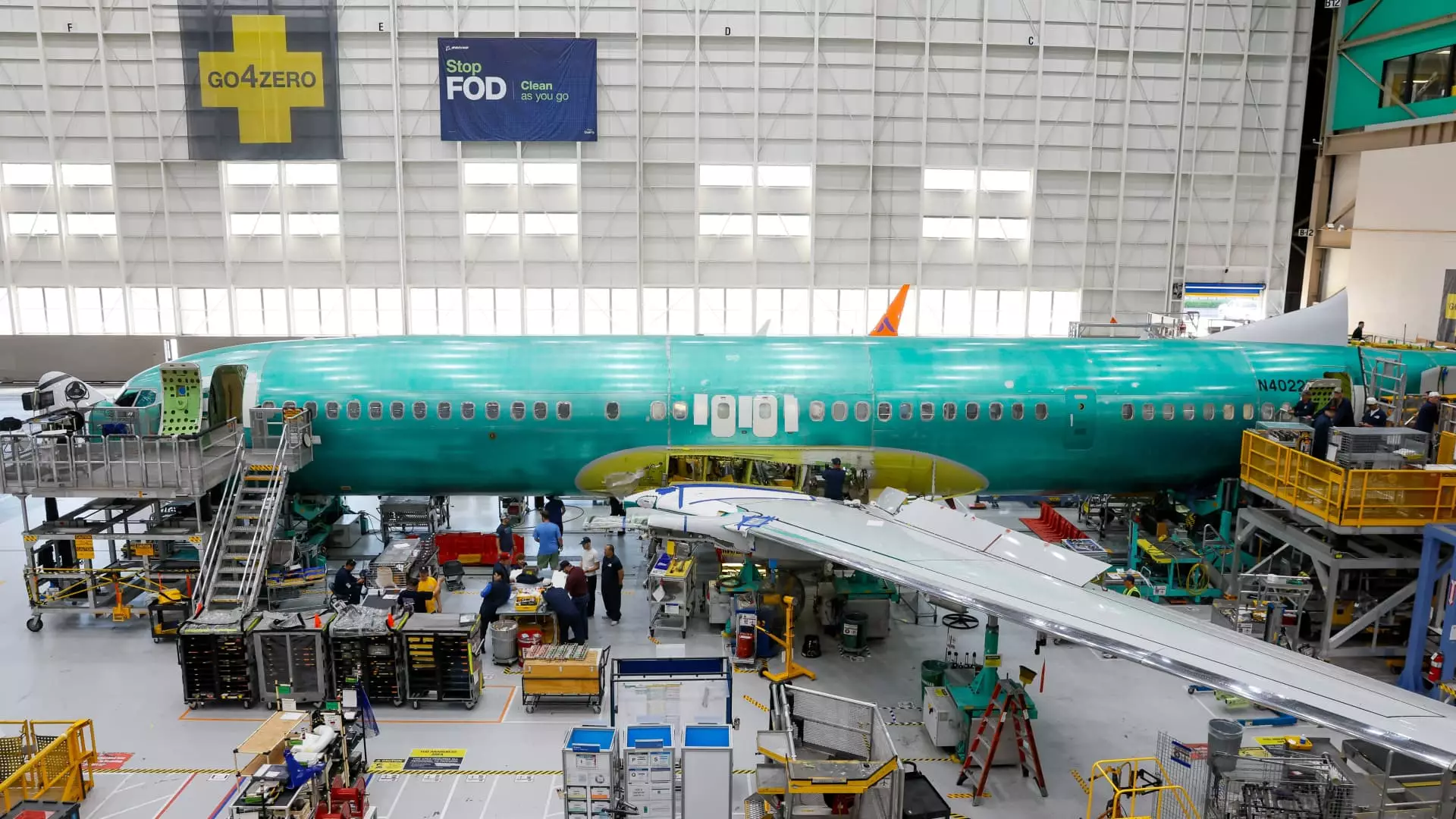The landscape of the aerospace industry is bracing for a significant potential disruption as Boeing workers go to the polls to vote on a new labor contract. This crucial decision, occurring on a Thursday, could lead to a crippling strike by the International Association of Machinists and Aerospace Workers (IAM) if the proposed agreement is rejected. The timing of this vote is particularly delicate, coinciding with Boeing’s efforts to ramp up production amidst ongoing challenges stemming from previous safety and quality lapses.
The Tentative Agreement and Its Implications
The tentative agreement, unveiled recently, promises substantial wage increases—25%—alongside enhancements to health-care and retirement benefits. This offer is positioned against the backdrop of a labor climate that has seen considerable negotiation successes across various industries, echoing recent contracts in sectors from Hollywood to airlines. Boeing’s strategy includes committing to manufacturing its next aircraft in the Seattle area, a decision that directly affects employees’ job security and local economies.
However, the IAM initially sought a significantly higher wage increase, demanding around 40%. Thus, the 25% proposed offer, while still attractive, may not fully assuage the sentiments among workers who feel undervalued. This deal is not merely a financial arrangement; it is a reflection of worker sentiment in an industry that has faced its share of setbacks.
Leadership Challenges at Boeing
The vote represents a critical moment for Boeing’s new CEO, Kelly Ortberg, who is navigating his first major test just a month into his role. Ortberg has actively engaged with employees across Boeing’s major facilities in Renton and Everett, trying to ease the concerns of workers and communicate the necessity of cooperation for the company’s recovery. His note to the staff echoed themes of shared future and the need for collective effort, challenging employees to look beyond frustrations of the past to seize present opportunities.
The leadership’s stance is a delicate balancing act; they must acknowledge past mistakes while simultaneously encouraging workers to invest in the company’s potential turnaround. The recent issues, including incidents like the door-panel blowout, cast a shadow over Boeing’s reputation and illustrate the stakes involved in the current contract negotiations.
Should the workers decide to reject the agreement, the ramifications could be severe. A two-thirds majority vote in favor of a strike would initiate a work stoppage immediately upon contract rejection. This scenario poses a dual risk: it not only halts production but also amplifies the distrust between Boeing and its customers, as highlighted by Ortberg. For a company already under scrutiny for safety and quality issues, the last thing it can afford is further damage to its credibility and relationship with stakeholders.
IAM District 751 President Jon Holden articulated the union’s position clearly. While they believe they have achieved a robust negotiating stance, they are cautious about the uncertainties of a strike ensuring better terms. The IAM leadership has recommended acceptance of the offer, but the ultimate choice lies in the hands of the workforce. This underscores the intense feelings surrounding the negotiations and the desire for profound systemic change.
This labor dispute reverberates beyond the boundaries of Boeing, representing a broader trend in labor relations where employees are increasingly demanding fair compensation and favorable working conditions in the wake of a post-pandemic recovery. The ongoing dialogue around labor rights reflects a seismic shift in worker expectations and the need for companies to adapt to these changes.
The outcome of the Boeing workers’ vote will not only determine the immediate financial landscape for those on the assembly lines but will also set a precedent within the aerospace sector and beyond. The stakes are high, and the choice that the employees make is poised to echo throughout the industry, underscoring the pivotal role of collective bargaining in shaping the future of labor relations in America. The world will be watching closely as polls close at 6 p.m. PT.

